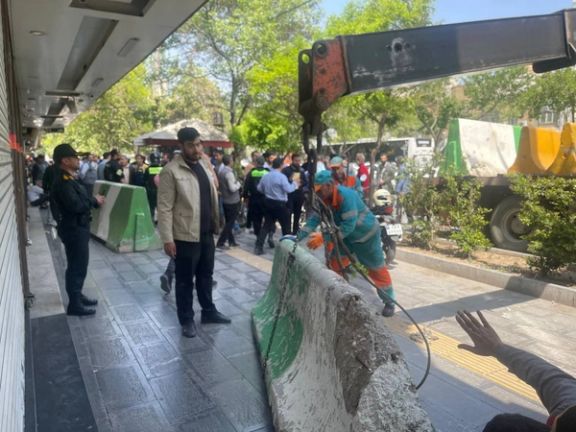Nationwide Strike By Gold Retailers Sweeps Across Iran

Gold jewelers across Iran have shuttered their shops, joining a merchants' strike that has now spread to multiple cities, including Tehran, Tabriz, Hamedan, Mashhad and Isfahan.

Gold jewelers across Iran have shuttered their shops, joining a merchants' strike that has now spread to multiple cities, including Tehran, Tabriz, Hamedan, Mashhad and Isfahan.
Sparked by new tax legislation passed by the Iranian parliament, the protest began in Tehran's bazaar on April 28 and has quickly escalated into a nationwide movement.
Videos obtained by Iran International show that Islamic Republic agents have sealed the shops of protesting gold jewelers in the religious city of Mashhad on Monday.
The primary grievance driving the strike is the reactivation of the Comprehensive Trade System coupled with the introduction of a Capital Gains Tax.
These measures are part of the government's broader economic strategy to streamline market operations and enhance regulatory oversight, claims President Ebrahim Raisi's administration.
However, the implementation has not been smooth, with gold and jewelry business owners expressing concerns. The new system mandates that all manufacturers and sellers, both wholesale and retail, must register their transactions, a requirement that has exacerbated anxieties within the sector over potential financial burdens.
The discontent among gold merchants intensified Sunday, as protests continued in cities like Shiraz, Yazd, Isfahan, Mashhad, Urmia, Zanjan, Qom, and Ardebil.
In a related but separate event, merchants in Bandar Abbas also held demonstrations to protest the recent hike in the value-added tax (VAT) rate, which was increased from 9% to 10% at the start of the current Iranian year in March 2024.
Experts have voiced concerns that the tax increases, which are passed on to consumers, might further fuel inflation, which has already reached an annual rate of over 50%, as reported by the Central Bank of Iran.